LASIK: The Best Treatments and Prices in Dubai
29 October 2021
1798 views
Refractive or corrective eye surgery was first pioneered by Father Wacław Szuniewicz, an ophthalmologist and missionary. During the early 1930’s to the mid 1940’s, Father Waclaw built a small missionary hospital to address the eye issues of the Chinese inhabitants in the Hebei Province, China. What started as a small missionary hospital eventually grew to 100-bed hospital where Father Waclaw personally operated on patients having several eye conditions such as glaucoma and retinal detachments. It was through his extensive work that Father Waclaw eventually began his research on light refraction and shape alteration of the cornea. Using the work findings and research of several ophthalmologists from around the world, such as Dr Tsutomu Sato in Japan, Father Waclaw performed several experiments at Yale University on changing the corneal curvature to enhance vision.
Another key milestone in the progression of corrective eye surgery evolved with Dr Svyatoslav Fydorov. When a young boy with shards of glass stuck in his eye, Dr Svyatoslav proceeded to shave off his cornea to save his vision. What resulted upon re-examination was the young boy’s vision had drastically improved. This has come to be what we know today as radial keratotomy, or a procedure to correct nearsightedness (myopia).
Today, corrective eye surgeries have evolved into using more sophisticated tools, with the two most dominant procedures, the first being Photorefractive Keratectomy (PRK), developed in 1983 by Dr. Steven Trokel and FDA-approved in 1996. The second, Laser-Assisted in-situ keratomileusis (LASIK), created and patented by Dr Gholam Peyman in 1989 and FDA-approved in 1999. LASIK was a revolutionary new method of using an excimer laser developed by IBM researchers. The excimer laser is used for PRK, LASEK and LASIK and considered safer since it removed microscopic tissue from the cornea with extreme accuracy, and without damaging the surrounding corneal tissue.
LASIK has evolved greatly with the help of more sophisticated and precise eye imaging and tracking technologies, and the advancement of FEMTO laser, considered by many ophthalmologists to be the gold standard for corrective laser eye surgery.
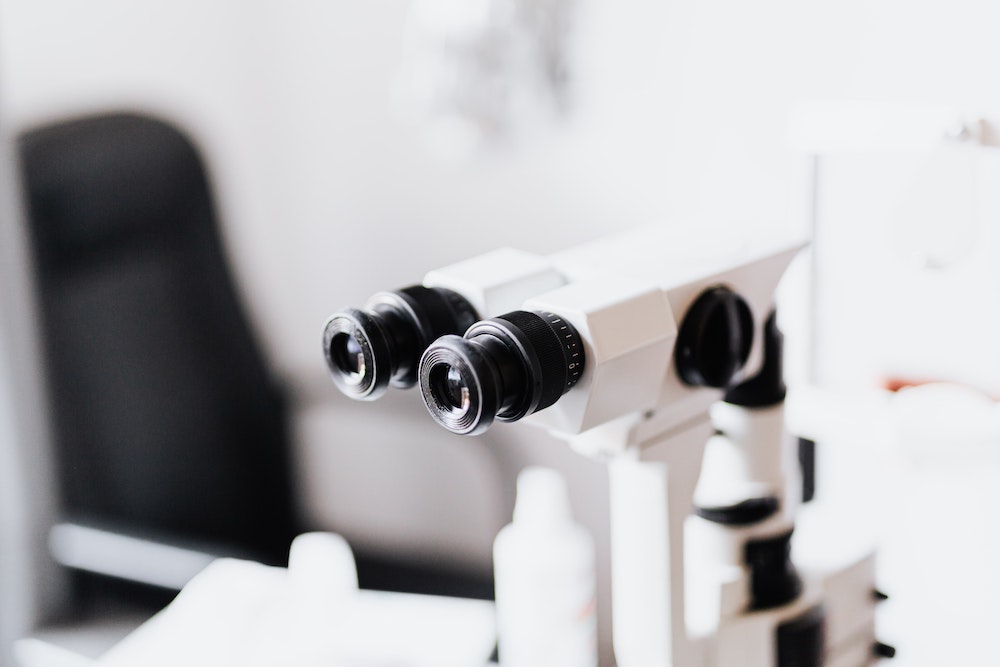
What are the different types of corrective or refractive eye surgeries?
The most common corrective eye surgeries performed in Dubai are as follows:
Photorefractive keratectomy (PRK) is a corrective laser eye surgery, where only a thin layer of tissue on the cornea (epithelium) is removed. After the excimer laser treatment is complete, the epithelium grows back usually in a few days. For patients with dry eyes, thin and irregular corneas and some other eye deficiencies, PRK is the better alternative than any other laser eye surgery. Also, for active people who engage in contact sports, and who may get struck in the eye, PRK is the safest corrective laser eye surgery.
Epi-LASIK is a corrective laser eye surgery where a very thin flap is created on the cornea (thinner than a LASIK flap). This is accomplished by using an epithelial separator to loosen the cells so a very thin flap can be folded back for the excimer laser treatment.
Laser-assisted subepithelial keratectomy (LASEK) is a corrective laser eye surgery that is reserved for people with extremely thin corneas and some underlying health conditions. It is also beneficial for patients with high levels of short-sightedness (myopia). If you are NOT a good candidate for LASIK, ophthalmologists will recommend LASEK as the safer alternative.
Laser-assisted in situ keratomileusis (LASIK) is the most commonly performed corrective laser eye surgery, where a hinged corneal flap is folded back for the excimer laser treatment to be performed and folded back down afterwards.
Femto LASIK is considered by many ophthalmologists to be the "gold standard" of corrective laser eye surgery where a Femtosecond laser instead of a blade (microkeratome) is used to cut the corneal flap before proceeding to the excimer laser treatment. This type of corrective laser eye surgery is referred to as “bladeless”.
Small-incision lenticule extraction (SMILE) is the newest corrective laser eye surgery that utilizes the proprietary Carl Zeiss Meditec technology, also classified as a Femtosecond laser. SMILE combines the advantages of PRK as a flapless procedure, alternatively creating small side incisions in the cornea to remove the lenticule (corneal tissue). The other advantage of this procedure is that it only uses one laser (Femtosecond) throughout the process as opposed to Femto LASIK. The current limitation of the SMILE procedure is that it can only correct near-sightedness (myopia).
The above mentioned corrective laser eye surgeries are recommended based on the patient's overall health, quality of vision, anatomy of the eye and other health markers. A final recommended treatment will be provided by the ophthalmologist or eye doctor to quickly manage and restore vision.
How can I find the right corrective laser eye surgery treatment for me?
Finding the right surgeon(s) determines everything
A surgery result does not depend on the reputation of a clinic. Ultimately, it is the expertise of the surgeon that determines the outcome. Nothing can replace the skillful hands of a surgeon who has deep insight into the human body and a patient’s aspiration.
Research the credentials, portfolio, and other patients’ reviews of the surgeon(s)
It’s difficult for a patient to evaluate the skill of a surgeon. However, there are some standard checklists you should apply to choose the right surgeon.
- First, ensure that surgeons/specialists/consultants are certified from trustworthy institutions.
- Second, check if they have excellently performed surgery for a similar case as yours. You may check their portfolio online or get it upon request to the clinic.
- Third, search up what other patients had to say about the physician that you shortlisted. Platforms like DrFive.com could be a good starting point for your research.
Know your budget and schedule
Most plastic surgeries are elective treatments. In other words, they will not be covered by your health insurance and you need to pay for the entire treatment. Depending on a few factors we will explain below, there are quite big differences in the treatment costs and you need to ensure that treatments from your shortlisted providers are within your budget. Don’t forget to determine when you want to get the surgery prior to contacting clinics. Most sought-after surgeons have a very tight schedule and the next available slots may only open up far beyond your availability. Having a clear timeline can prevent unnecessary last minute surprises.
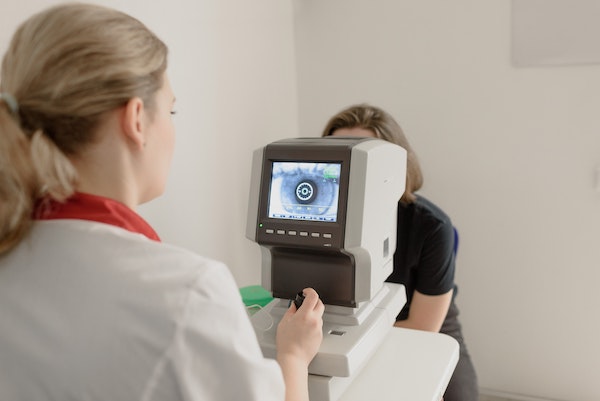
What are the driving factors for the different prices of corrective laser eye surgery treatments in Dubai?
Qualifications of the practitioner
Medical groups in Dubai are diverse and numerous. Physicians come from different schools of thought and each gives their own perspective on the best treatment options. Some of these doctors are board certified from recognized institutions in the UK, Europe or USA, while others have regional or local qualifications. All of whom possess a knowledge base with a specific set of training and practical knowledge.
Brand awareness of the clinic
Treatments from more reputable hospitals will usually be costlier than clinics not widely known to people. Institutions make huge investments to build a trusted brand and we, as the end-consumers, are expected to, in return, pay a premium for that brand. Certain local clinics in Dubai have established a history of providing excellent care to people, and in turn, are more expensive than new entrants in the cosmetic treatment field.
Experience of the practitioner
It is quite understandable that you pay more for a service from a more experienced practitioner. For cosmetic procedures, and other specialties, you will usually need to pay more to get treatment from consultants rather than specialists, GPs and other physicians, as they have more expertise and practical experience in their field.
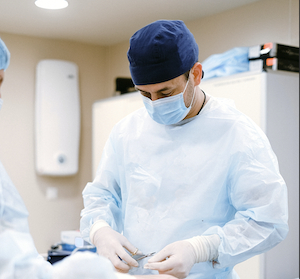
What are the prices for corrective laser eye surgery treatments in Dubai?
Many clinics in Dubai will evaluate every candidate’s eyes, health markers and the expected results to recommend the most suitable corrective laser eye surgery treatment. Therefore, a complete in-person consultation with an ophthalmologist or eye doctor is necessary for a clinic in Dubai to quote a price for the corrective laser eye surgery treatment. Since corrective eye surgery is usually categorized as an elective procedure, it will not be covered by insurance policies. Here is a price breakdown of corrective laser eye surgeries in Dubai.
Comprehensive eye examination prices in Dubai range between AED 250 to AED 500 with an average price of AED 375.
- Photorefractive keratectomy (PRK) and Epi-LASIK prices in Dubai range between AED 2,000 to AED 7,000 for both eyes, with an average price of AED 4,500.
- LASIK prices in Dubai range between AED 3,000 to AED 9,000, with an average price of AED 6,000 for both eyes.
- Femto LASIK prices in Dubai range between AED 3,500 to AED 9,000 with an average price of AED 6,250 for both eyes.
- Small-incision lenticule extraction (SMILE) prices in Dubai range between AED 7,000 to AED 9,000, with an average price of AED 8,000 for both eyes.
Here are some ongoing prices* from notable medical providers in the UAE for various corrective laser eye surgeries:
Laser Eye Care and Research Center Located in Dubai Healthcare City, Laser Eye Care and Research Center (LERC) was founded by Dr Anwar Sajwani, and has been treating patients in Dubai with various eye issues for over 16 years. Dr Anwar was a pioneer in the area of vitreo-retinal surgery and continues to apply his expertise to help UAE residents enhance, repair and restore their vision. Dr Anwar was the first eye doctor recognized for his exceptional work by the UAE government, and was awarded the Sheikh Rashid Prize of Excellence in 1995. He is also the VP of the Ophthalmology Society of the Emirates Medical Association. UltraLASIK price is AED 3,497 (both eyes) Relex SMILE price is AED 9,997 (both eyes) North American Lasik & Eye Surgery Centre North American Lasik & Eye Surgery Centre is one of the leading eye clinics in Dubai having performed more than 8,000 LASIK surgeries and counting. The staff are internationally trained and capable of performing the best possible vision correction procedures and follow up support. UltraLASIK price is AED 3,000 (both eyes) FemtoLasik (Bladeless) price is AED 6,000 (both eyes) Relex SMILE price is AED 9,000 (both eyes) Dr Sulaiman Al Habib Hospital Dr Sulaiman Al Habib Hospital is known for its excellence centers, and they are well respected as one of the biggest healthcare providers in the Middle East in various health specialties. HMG is also the recipient of multiple industry excellence awards. HMG’s ophthalmology department boasts some of the latest technologies and provides corrective eye procedures for children. PRK (Epi-LASIK) price is AED 3,500 (both eyes) Zulekha Hospital Zulekha Hospital, is one of the oldest healthcare providers in the UAE and provides some of the best medical care in over 30 specialties. The hospital is well known for providing high levels of medical care at affordable prices. The hospital’s ophthalmology team is highly skilled and performs a range of both routine and complex eye surgeries. FemtoLasik (Bladeless) price is AED 1,799 (one eye) FemtoLasik (Bladeless) price is AED 3,499 (both eyes) Mediclinic City Hospital Mediclinic is a well known South African medical group. Its first foray into the UAE’s medical industry was in 2008 with the establishment of Mediclinic City Hospital located in Dubai Healthcare City. Today, Mediclinic has over 15 clinics and facilities in the UAE where patients can receive the best ophthalmology care. LASIK price is AED 6,000 (one eye) LASIK price is AED 9,000 (both eyes) *The above mentioned prices may not necessarily include the below mentioned costs: In addition, prices mentioned above may be seasonal and can change periodically, so it's always best to double check with the clinic and confirm.
Comments
Other Articles
Latest News
How Emirates Smiles challenges Invisalign in Dubai
A story on how a new startup like Emirates Smiles has challenged Invisalign
17 March 2023
Top Do's and Dont's for Patient Referrals
Things to avoid when managing your patient referrals and the perfect feedback to a patient referral
07 March 2022
Express Quote Tutorial
An overview of Express Quote referral service and step-by-step tutorial for using Express Quote
16 February 2022
Ask Doctors in Dubai
Thank You
Login
Login
Forgot Password?
Register Now
Edit Topic
Edit Comment
Edit Review
Profile Image
Loading...
Please wait...

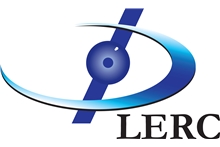

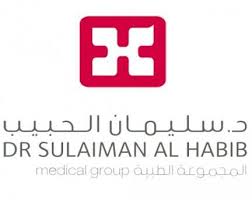
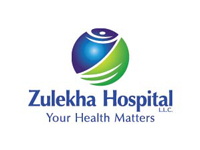
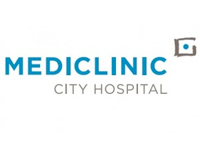



Enter your comment below
Press 'ENTER' key to submit